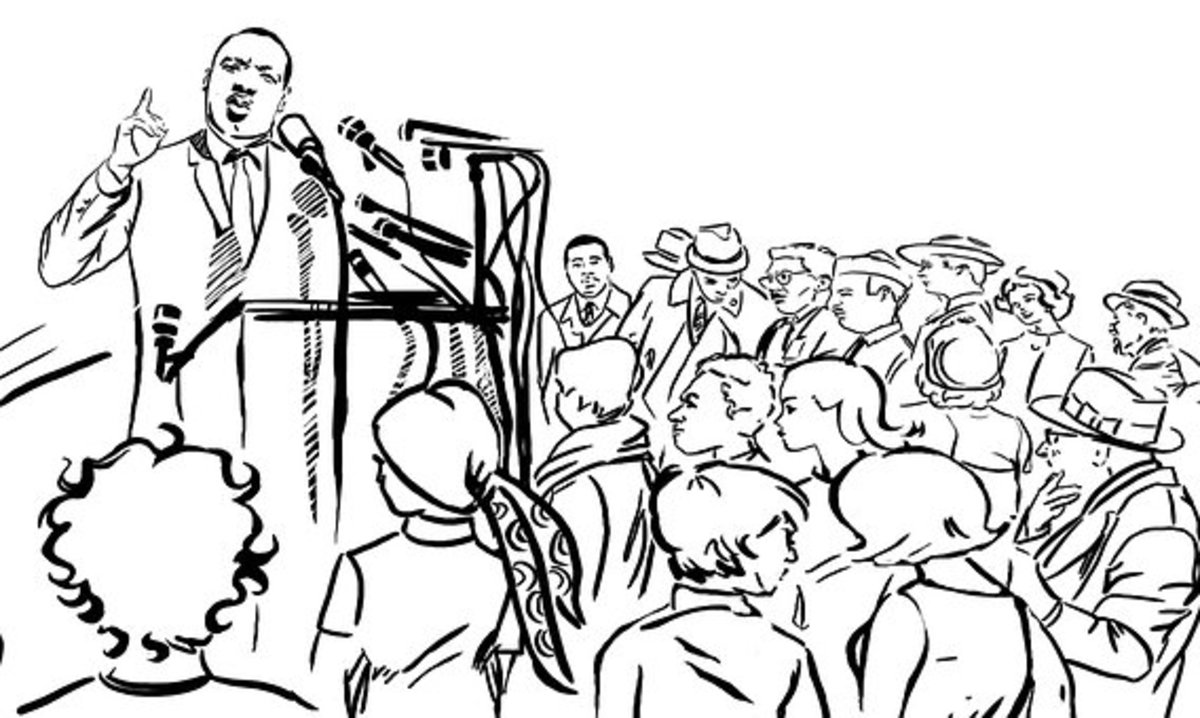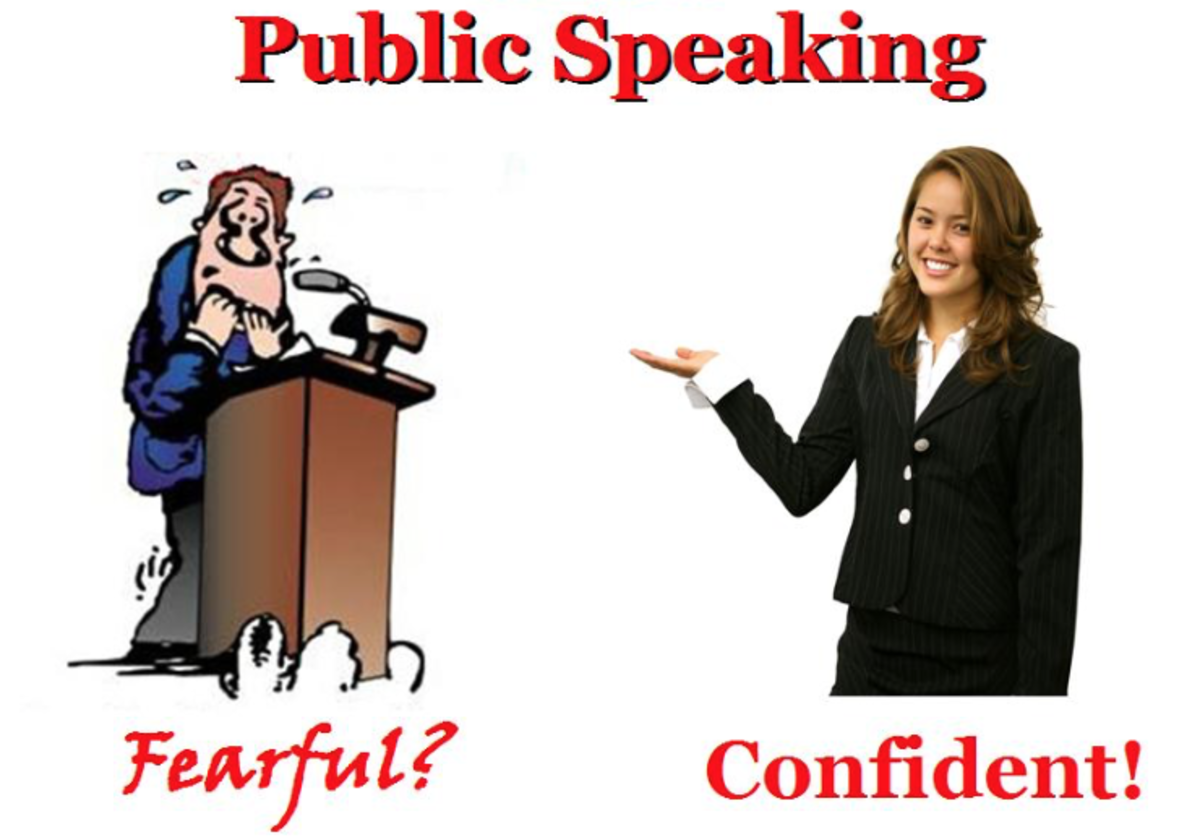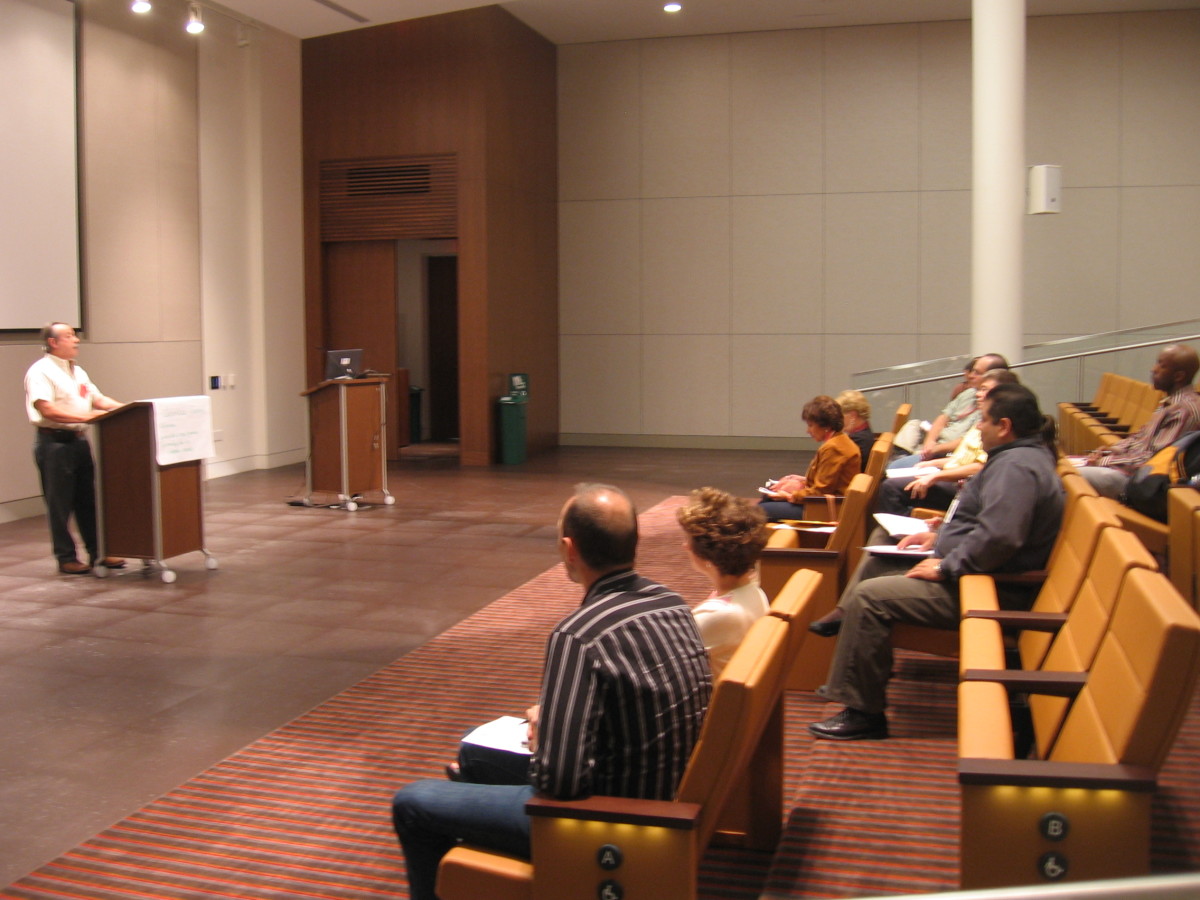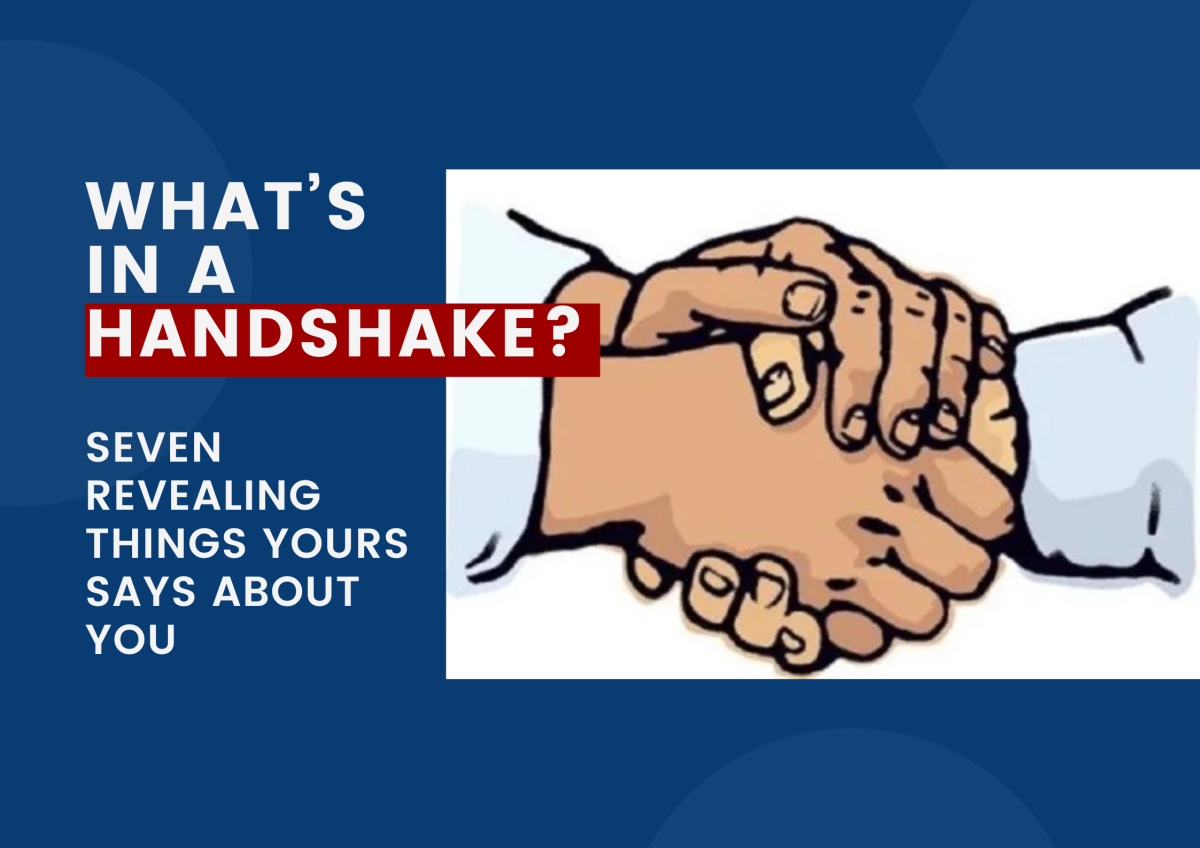Public Speaking Tips: Getting Audience Participation
Tom the writer, speaker and storyteller at sixty
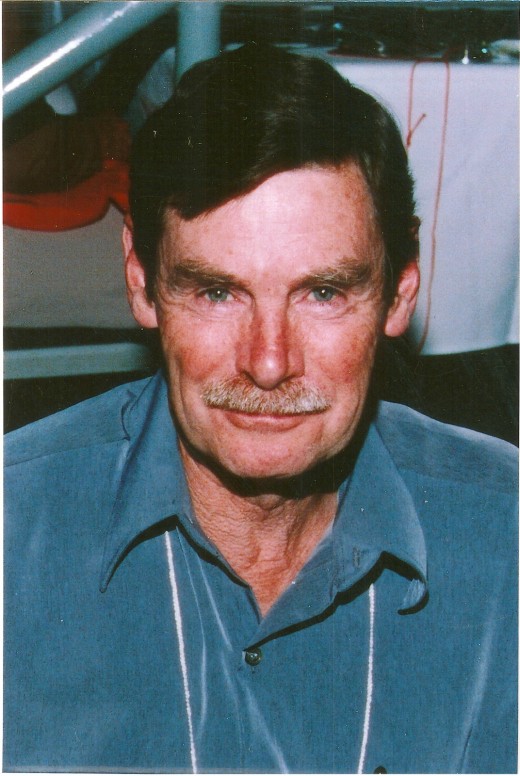
Welcome to Public Speaking Tips: Audience Participation
When we eventually make up our minds to get over our fear of public speaking, as often as not we join a public speaking club. We generally do this within an organization such as Toastmasters, Rostrum or Penguin. Or we may decide to enroll in an evening college, in a class which specializes in oral communications skills. Or we might spend big money to have personal one-on-one tuition. Whatever we decide upon, one thing is almost certain: our presentation times within these learning environments will inevitably be quite short. We are probably just one person among a number of our other students. We cannot monopolize the time. So it would be no exaggeration to say that rarely do we get a chance to speak for more than five or ten minutes as we stand in front of our class or club.
Five or ten minutes not long enough outside of our speaking clubs
However, when we eventually get to the point where we feel we’re good enough, or the circumstances of our lives demand it, we venture outside of our training environment to speak to audiences in the world at large. We ‘go public’ so to speak. These new challenges might involve business audiences, work colleagues. Or they might be club members of an organization to which we belong – as distinct from our training organization - for example our Rotary, Lions or Probus Club. Whatever these speaking sessions are, a five or ten minute presentation will not be the norm. We will be called upon to speak for far longer than that. Out in the world beyond our training organizations, speaker-organizers will want us to address audiences for twenty, thirty, forty even fifty minutes or more. So, suddenly we’re presented with this challenge:
“How can I keep an audience interested for three quarters of an hour!”
Public Speaking tips: Audience Participation is normally required in our longer presentations
Now, it has been said that even a really astute audience member’s attention can wane after listening continually for twenty minutes. If this is the case, and I suspect it is, what can we do to keep him or her interested? Well, we can have visuals. But this essay is not here to deal with that side of it. We’re here to talk of audience interaction.
For myself, I am both a public speaker and a storyteller. Being able to tell stories does make it a lot easier. So if you can tell a story well, and it’s a good, riveting story, you may well be able to hold that audience all the way through. This has certainly been my experience.
A typical Probus Club luncheon. There are over a thousand Probus Clubs in Australia
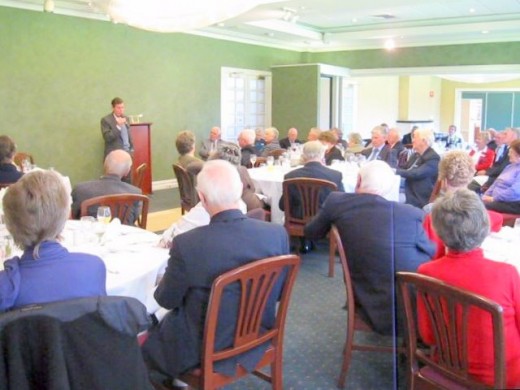
Your audience will want to be involved - let them be
But if it’s not a story, if it is a speech or a dissertation of some sort, there is definitely the requirement of audience participation. Your audience will want to be involved. They will want to be part of what’s going on. They will want to act, to speak, be part of it. So how can you enable them to do this? More importantly, how are you able to empower them to do this with safety, yet keep it so that they don’t steer you away from what you wish to say - or take over completely?
The simplest method - a show of hands
Most experienced speakers do it by asking their audiences questions which the speaker anticipates will be answered in ways he or she expect. For example, I might say: “Hands up those of you how have ever lived at…..” “Anyone here ever been on a holiday to….? “ You ask questions of this nature when you’re pretty sure a least some people in the audience will put up their hands. Once they’ve done so, you focus on one of these participants and ask a further question or questions. But the second and, maybe third of questions, are couched in a way you’re pretty certain they’ll answer – and answer them so that you can move the speech or story along.
“What town exactly?” “When were you there?” “Would you say it’s a beautiful place?” You then follow with your answer. “Yes, that’s what it was like when I was there in 19… , or “ I have to agree with that one. It is wonderful,” et cetera.
Yours truly addressing a group in a church hall
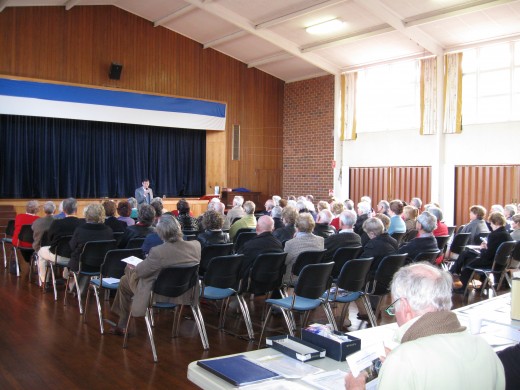
Public Speaking Tips: Let them provide answers
And, of course, if you’re doing an instructional or educational type session you can ask questions of the audience and write their answers on a whiteboard for all to see. This is commonplace. You need to ensure, if you change their words in order to abbreviate, that they’re happy with what you’ve done. So there is more feedback and banter as you do this. That is, there is more audience participation.
The rule of three can also come be used when asking of these questions, too. In one of my presentations, a story about an aviation incident, I ask. “Has any one here heard of ‘Parkinson’s First Law?’ ” Sometimes someone has. More often than not, none of them have. So then you ask, “Has anyone here heard of ‘Murphy’s Law.’ Up go a lot of hands.
“And what is it?
Another one of those interminable dinners - I love 'em!
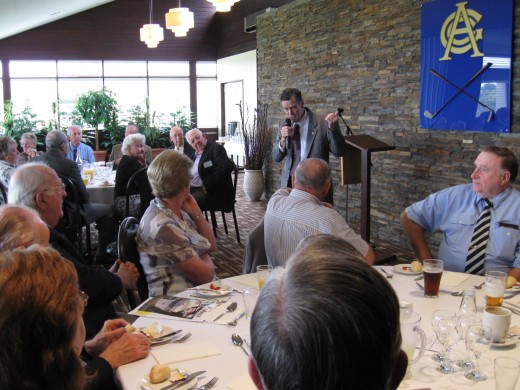
People clamour to answer if you encourage them
People clamour to anwer. You take one answer which is right and you repeat it so everyone can hear. In this case, I ask a third question. “Has anyone heard of Ware’s Law?” (my name) No one has, so I tell them. “Ware’s Law states that the seriousness of an announcement made by anyone in authority is inversely proportional to the seriousness of the real event.”
Frowns, and smiles. “What’s he on about?
I repeat my definition of Ware’s Law and then give a humorous example of what I mean.
Audience participation : In a Q & A don't surrender your microphone
Question and Answering Sessions.
If you have a really big audience, say, a hundred or more, and you’re having a question and answer session, don’t surrender your microphone! Have an assistant go out into the audience with a second microphone which they will hand to the questioner. But that assistant needs to be someone with some gumption and a reasonable amount of assertiveness. Your helper must know when and how to relieve the questioner of that microphone. For the microphone with the voice behind it has the power, and you don’t want to lose power to a garrulous member of the audience. Give them a fair go. But don’t let them monopolize. They are allowed to answer the question, not tell us their life philosophy.
There are a helluva lot of 'Oldies' organizations out there
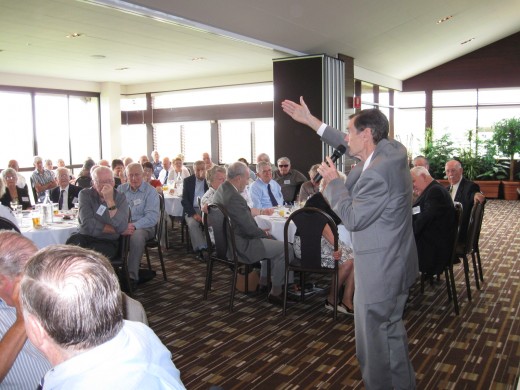
Speaking Tips: Don't have a Q & A after your motivational speech
Keep the question and answer period short. No more than five or six questions. Let the assistance – and the audience - know when it’s about to come to an end with, “We’ll take one final question.” And make sure it is the final one. Give in once, and more hands will go up. After the Q and A session is over, thank the audience and your helper for their assistance.
Word of warning: If you intend to give a motivational speech or a speech to persuade the audience to take some action, don’t have a Q and A at the end. Your message will be lost in the cross banter and opinions which are put forward. It will leak away. So if a Q & A is absolutely expected, have it before you give your prepared speech. Remember, except in purely informative or entertaining speeches, the idea is to persuade, so keep that in mind as you make your arrangements to put on your motivational or inspirational speech last.
I hope you’ve got something from this Public Speaking Tips essay on Audience Participation.
More on the writer
- Tom Ware - YouTube
Tom Ware is a Master Storyteller. Known as 'The Prince of Storytellers, Tom has been entertaining audiences with stories for thirty years. Tom joined his fir... - Tom Ware Public Speaking The Prince of Storytellers
Tom Ware Public Speaking! Tips, events and videos to help you become a gifted speaker. Visit now!

